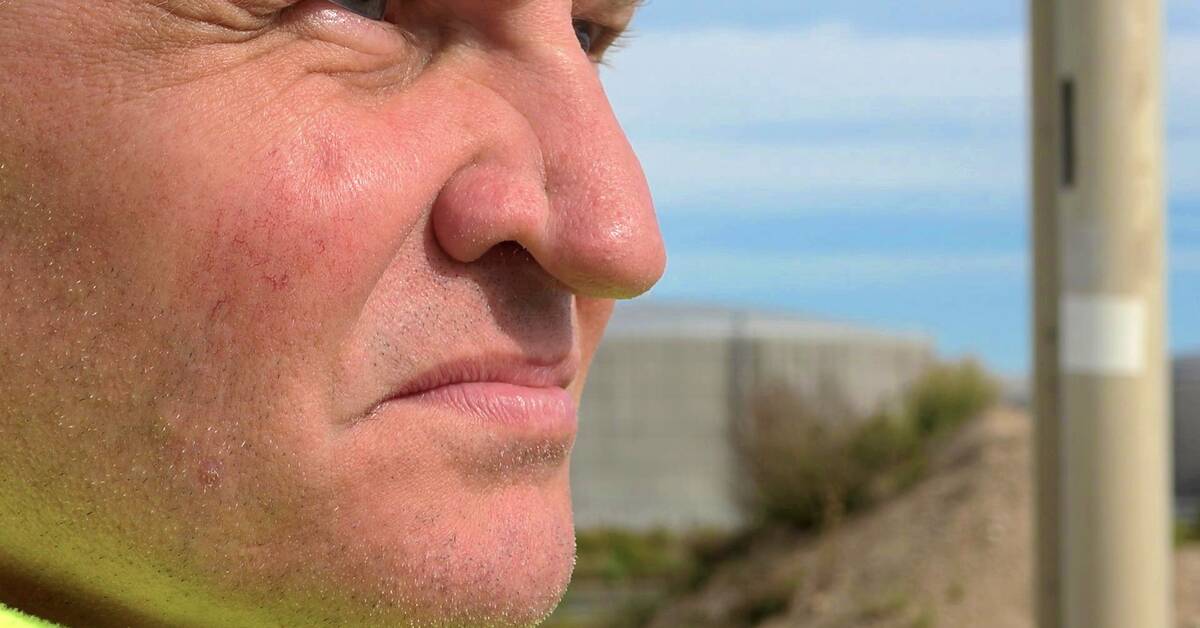A year has passed since environmental inspectors in Malmö started with so-called smell rounds.
- We cycle or drive around the harbor area and sniff for the smell, says Håkan Karlström, who is an environmental inspector.
Depending on the direction of the wind, he can smell the smell that has led to more than 3,000 complaints from Malmö residents.
Like many of the complainants, he describes the smell as burnt rubber or asphalt.
With the help of an app and their nose, the environmental inspectors have so far managed to locate two sources – the companies Peab and BMI, which have one thing in common.
- They use bitumen, says Håkan Karlström.
"It just has a certain smell" - watch the clip above to hear what the environmental inspector has to say about the bitumen smell
Searched for new suppliers
The municipality has had regular contact with the companies since they were singled out as sources behind the stench in Malmö.
Protocols from the environmental administration state, among other things, that the companies have used Russian bitumen.
In 2019, the EU and the US imposed sanctions on Venezuela, one of the world's largest bitumen exporters.
Companies that previously got their bitumen from there then had to turn to other suppliers, for example Russia.
- The bitumen from Russia contains large amounts of sulphur, and so the production process has an impact on the smell, says Håkan Karlström.
Continued supplier – despite war
When the war in Ukraine began, several companies distanced themselves from Russia.
Peab, on the other hand, continued to procure Russian bitumen, which Dagens industri was the first to report.
In an email to SVT, Peab's press spokesperson writes that the company expects to have phased out all Russian bitumen by the end of October.
BMI says it has not bought Russian bitumen since the start of the war.
The company does not want to reveal where it buys bitumen from.
Neither Peab nor BMI wanted to be interviewed.

